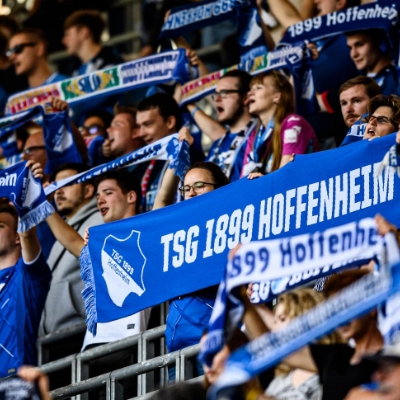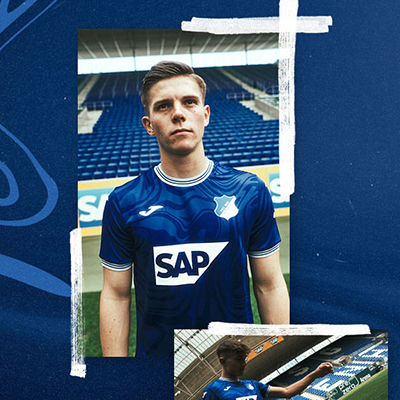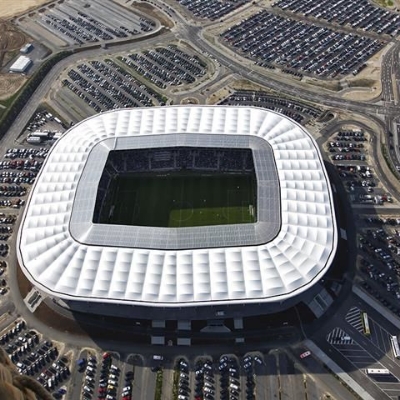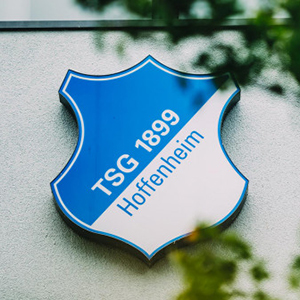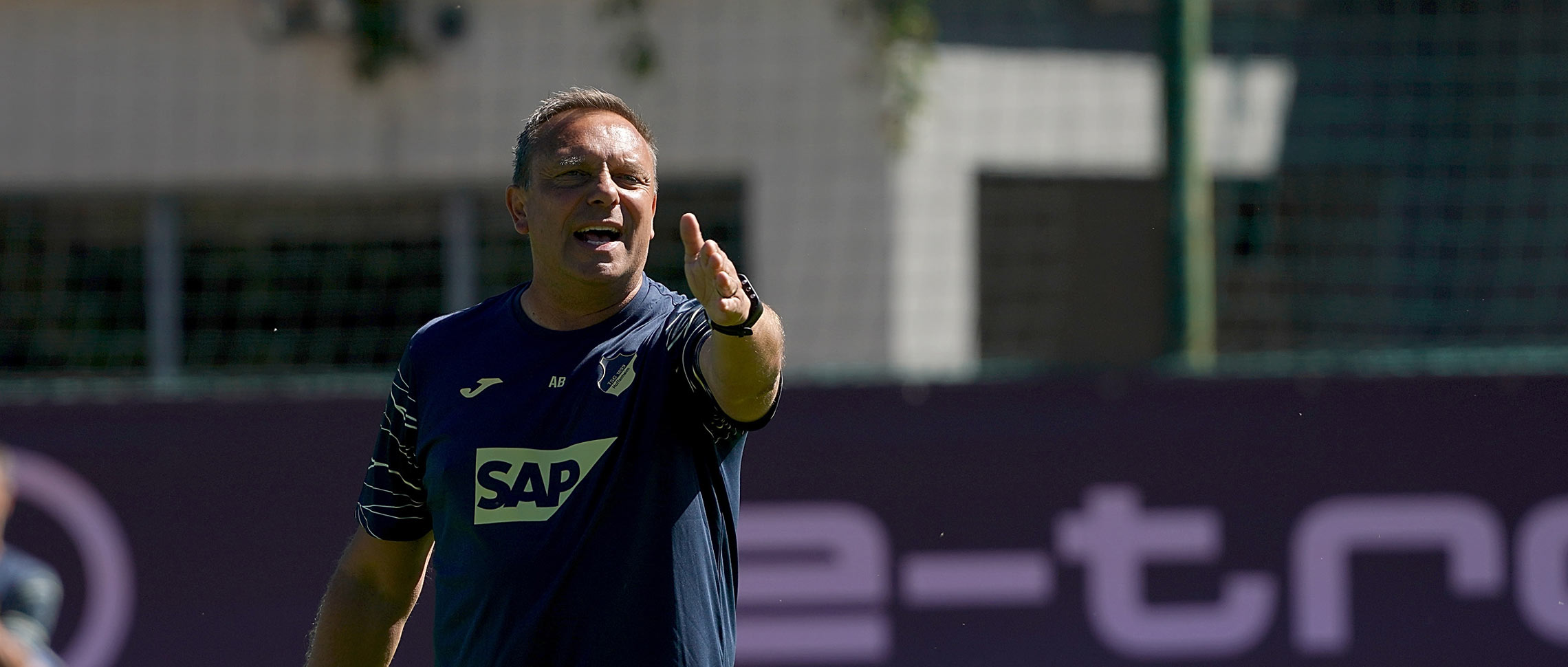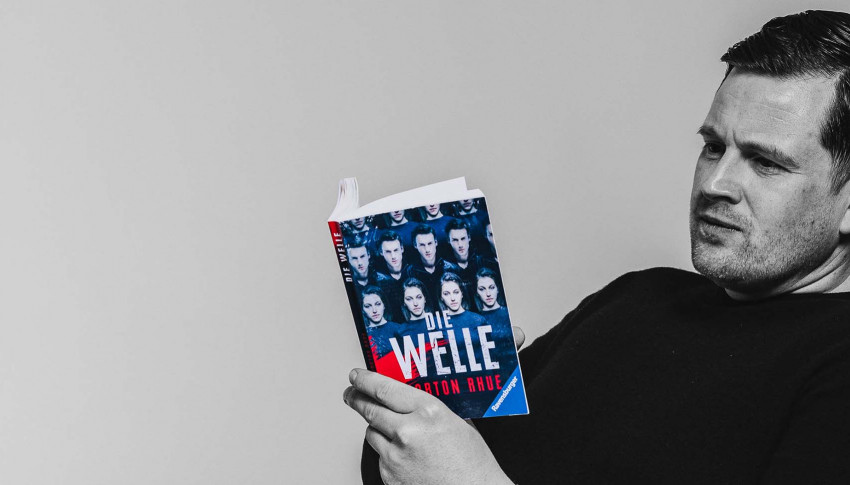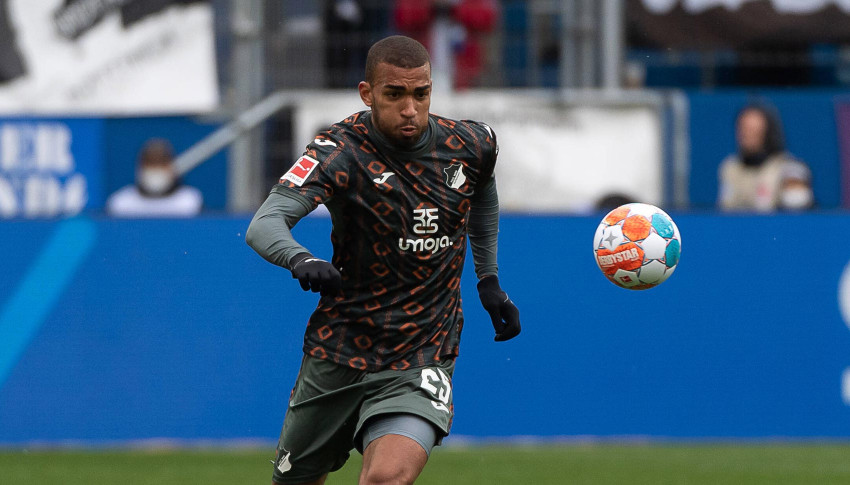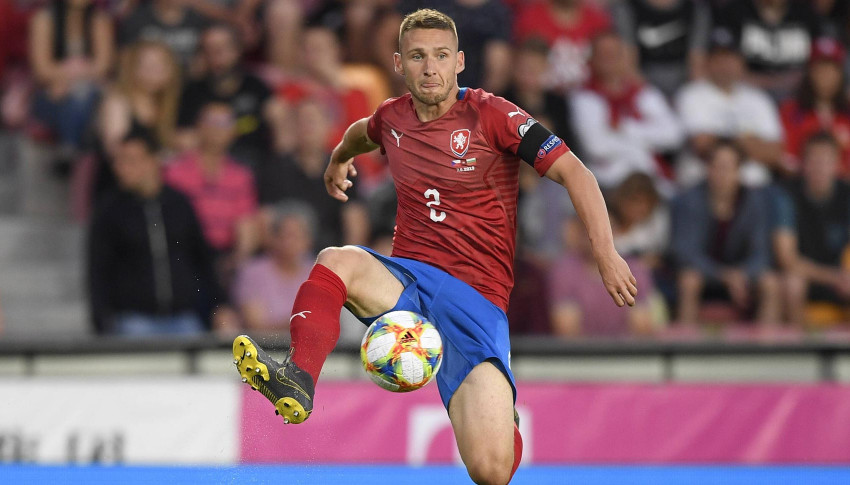Breitenreiter: "The focus is on football here"
André, the pre-season training regime was very intensive; many players referred to it as the most demanding weeks of their career. How well prepared is the team for the start of the season?
"Pre-season serves to lay the foundations for a successful season. This includes intensive training sessions in order to lay the physical and footballing groundwork. But it's also about the players proving themselves at this time and giving their all to showcase themselves."
To what extent were you shaped in this regard by the coaches you had during your playing career?
"The most successful times I had as a player were when we trained intensively and my fitness reflected that. Hence why we as a coaching staff want to convey to the lads that pre-season is a very important period if you want to be successful during the season. Under Magath, the players who went the hardest in training always played. I definitely felt that was fair and correct. That's why – irrespective of name and club – anyone who thinks they'll get in the starting XI by taking half-measures doesn't stand a chance. In the end, it's performance that counts when it comes to our line-up. And I can say that the whole team has pitched in really well so far."
"Everyone should strive for maximum success"
Last season ultimately did not end on a successful note. What are you doing to ensure that changes?
"Many pieces of the mosaic have to come together for a team to be successful. These include the players, the coaching team, the backroom staff, the club employees and, of course, the fans. Everyone should strive for maximum success. A season is a big challenge and I – along with everyone else – approach it with total commitment. As a coach, I want to set an example that I'm convinced by the things we're going to do – being clear and open with communication, but demanding on and off the pitch as well. I want to work towards creating a positive self-esteem among everyone at TSG. The first few weeks have been promising, but of course you also need to be successful. You can't talk your way to that success; you have to work for it on the pitch, with a brand of football that inspires. Our goalkeeper, Oliver Baumann, said in an interview that we have something to make up for to the fans and the club. I think that's a very good attitude."
What do you need to work on to get the players performing better than last year?
"When the players feel secure with the processes on the pitch, a lot of things get easier. We need to make sure they become second-nature. For example, we did a lot of finishing practice for the strikers in training. This creates a kind of naturalness which ensures they choose the option with the highest probability of scoring a goal in pressure situations during a match. That certainty makes you stronger and better. Another example: you don't improve a Bundesliga player these days by training speed. When a player is in his mid-20s, he doesn't get much faster. These guys are mature. Rather, it's about making them feel faster, which is connected to freshness and explosiveness."
How do you go about getting the guys to feel this?
"Fundamentally, players want answers to three questions: Does the coach communicate well with me? Can he improve me? And are we winning matches together? We're all trying to find a way to be able to answer those questions positively here."
In recent years, TSG have largely looked to footballing solutions and played out from the back, instead of hitting the ball forward. How much does that fit in with your philosophy?
"I like this approach. We also have the players to do it. I don't want us to hit the ball forward and hope. Our players are too good for that. That said, it's about finding a balance. You can't be too shy to play through the opponent's pressing. But that doesn't mean blindly hitting the ball forward."
Is the back three you played with in pre-season your preferred formation?
"I have to put the players in their best positions; the formation is determined by that. It's all about flexibility. The 3-5-2 system has been successful at TSG in the past and the lads are familiar with it. But it can change within a match. We have also played in a 3-4-3 off the ball or lined up with a back four. So we're flexible."
"We want to achieve something together"
What makes you optimistic that the season will be a success?
"The focus is on football at TSG. I saw in Zürich what is possible in this case. At my previous clubs, there was always background noise and other things that dominated the headlines. Here, though, there is an opportunity to focus on the fundamentals. That's very important if you want to be successful. That's why I was so quick to choose Hoffenheim. I sense a real excitement to be working together. Everyone is pulling together – players, staff, employees, fans. And I hope this positive mood will catch on. It's clear that not everything will work straightaway. But the guys are ready and we're all staying focused. We want to achieve something together."
You were very open about your objectives and said 'I want to be standing up on the balcony too'....
"That of course seems excessively ambitious at first. It's important to remain realistic and to put our situation into perspective. But fundamentally it's about creating an image that everyone can visualise. Everyone then knows what this objective looks like. It's about creating visions for everyone at and around the club that can be achieved if you give it your all. And this is where I sense the enthusiasm and the extremely high potential too. That doesn't mean we'll automatically compete at the top. We'll have to work hard for it. But what's wrong with saying things that are actually only logical? I mean, that's why we all play football. I didn't go onto the football pitch as a child because I wanted to stop goals being scored. I wanted to score goals and win."
When you introduced yourself at the end of June, you said: 'Communication is the most important thing to me.' How do you address the team?
"For me, communication means first and foremost being open to dialogue with everyone. If I'm always distant and only observing, I won't have any interaction with the team, the coaches and the staff. That's what I believe. That's why I always get very close. I want to get to know people in order to understand each individual. It's also important for me to find out background information about players or colleagues and to take an interest in their personal story. Every person needs something different from your interaction: one person night need more guidance, another more composure, for example. I want to develop a feeling for that."
Were there moments in your coaching career that you would approach differently nowadays?
"Of course. There's no such thing as the perfect coach and it'd also be fatal to think you get everything right. It's much more important to learn from your mistakes and make sure they don't happen again. I try to work on myself every day. I'm a compassionate guy who makes a lot of decisions based on intuition and gut feeling. I want to be the kind of coach I would've liked to have as a player myself. I know from my own career what can help the lads and what to pay close attention to."
You made 144 appearances in the Bundesliga yourself. Does that help you to put yourself in the players' shoes?
"It'd be bad if it was any other way. I know the tricks the players use. I know every excuse, because I've used them myself (laughs). So it's much easier for me to approach a player and have an impact. I liked coaches who gave me clear feedback. Even if it was critical and I might have gulped at the time. If I was given a possible solution, I knew what I had to work on to get a chance to play. But I also had coaches who told me I was the best player. Yet I still didn't get a chance to play. I'd never do that. If a player wants to know why he's not playing, I'll give him a clear explanation. But he also gets support and assistance so that he can work on it. I'll also reward him when I see that he's working on himself. It's important to deal with the players correctly. Even though I can't always please everyone."
"Because a team is more successful when it goes about its business with a sense of fun"
In the past few weeks, we've mainly seen André Breitenreiter in a positive and optimistic mood. Is there another version too? Does he ever have to raise his voice?
"There's no need for me to walk around with a serious face. It helps in football if one can play with a sense of freedom and not be afraid. The players are allowed to make mistakes; they don't get their heads bitten off for it. They should be courageous; that's what we try to teach them. At the moment, I don't see any problems; I see enthusiasm and excitement. Everyone is on board, not only on the pitch but off it too. There's a very good spirit. That's important. Because a team is more successful when it goes about its business with a sense of fun. We have all turned our hobby into our job. We all do what we love. It annoys me when players don't do everything they can to reach their full potential. Then I get straight in there; I don't stand for that."
Your approach has been very well received by the fans; they're already showing you great appreciation after only a few weeks. What does that mean to you?
"The players should be in the foreground. I'm someone who prefers to operate in the background. It's not about me, it's about us moving the club forward together. Ultimately, the players are primarily responsible for that; I can only give them ideas. As a team, we want to make sure we make the supporters happy. Via sporting success on the one hand, and by taking time to fulfil their wishes, sign autographs and take selfies on the other. It all comes back around, especially in difficult spells. When everyone feels involved, a different kind of motivation develops and there is a focus on a joint objective. For me, that's what constitutes 60-70% of success, especially when dealing with a team. Because everyone wants to feel valued."





